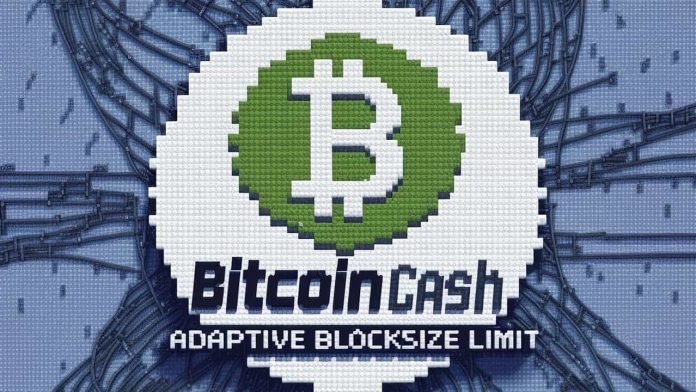- Bitcoin Cash has introduced an adaptive blocksize limit (ABL) algorithm in its latest network upgrade.
- The ABL feature is designed to automatically adjust the size of blocks as needed by the network’s transaction volume.
- This change could potentially end the long-standing debate over how best to scale networks for larger numbers of transactions.
- The new system uses a mathematical approach involving an exponentially weighted moving average of past block sizes.
- Supporters on social platforms like Reddit have expressed positive views about this update, seeing it as a significant improvement.
Bitcoin Cash, has recently upgraded its network with a new feature known as the adaptive blocksize limit (ABL) algorithm. This development aims at making the blockchain more efficient by enabling automatic adjustments to the size of blocks according to real-time transaction demands.
Understanding Adaptive Blocksize
The core idea behind ABL is straightforward: allow the blockchain to adapt its block size limits dynamically based on how many transactions are occurring.
If there are more transactions, blocks can increase in size; if fewer, they can decrease.
This flexibility helps manage traffic effectively without manual intervention—a process that can be slow and susceptible to influence or errors.
Traditionally, debates around block sizes have been intense within cryptocurrency communities.
Larger blocks generally mean more transactions per second and lower fees but require more computational power and storage space from those participating in maintaining the network (known as miners).
Smaller blocks tend toward higher fees and slower processing times but are easier for individual miners to handle.
How Does It Work?
Technically speaking, Bitcoin Cash’s ABL algorithm calculates changes using what’s called an exponentially weighted moving average—this looks at previous block sizes and adjusts future limits accordingly. There are two main components involved:
- Control Function: Helps moderate how quickly or slowly block sizes change.
- Elastic Buffer: Provides extra capacity during sudden spikes in transaction volume so that sudden increases don’t overwhelm the system.
These mechanisms work together seamlessly under normal conditions while providing additional support during high-demand periods without compromising security or performance.
This innovative adjustment mechanism sets both minimum floor values for safety and responsive ceilings for growth potential within predetermined parameters ensuring stability even with fluctuating usage levels.
As cryptocurrencies continue evolving towards broader adoption globally, solutions like Bitcoin Cash’s ABL algorithm represent significant steps forward in addressing fundamental challenges such as scalability—an essential factor for any technology aspiring widespread use across various industries worldwide.
Enthusiasts believe these improvements might finally resolve longstanding scaling issues that have plagued similar technologies since their inception.
LATEST POSTS
- Andrew Tate Claims He’ll Invest Millions in GameStop Amid Stock Hype
- Nigeria Revisits Crypto Clampdown Amid Currency Crisis
- VPS AI: Pioneering Decentralized Cloud Computing Solutions
- Ghana to Adopt Blockchain in Governance for Transparency and Anti-Corruption
- Binance Fined $6 Million by Canadian Authorities for Non-Compliance
Previous Articles:
- Andrew Tate Claims He’ll Invest Millions in GameStop Amid Stock Hype
- Nigeria Revisits Crypto Clampdown Amid Currency Crisis
- VPS AI: Pioneering Decentralized Cloud Computing Solutions
- Ghana to Adopt Blockchain in Governance for Transparency and Anti-Corruption
- Binance Fined $6 Million by Canadian Authorities for Non-Compliance

